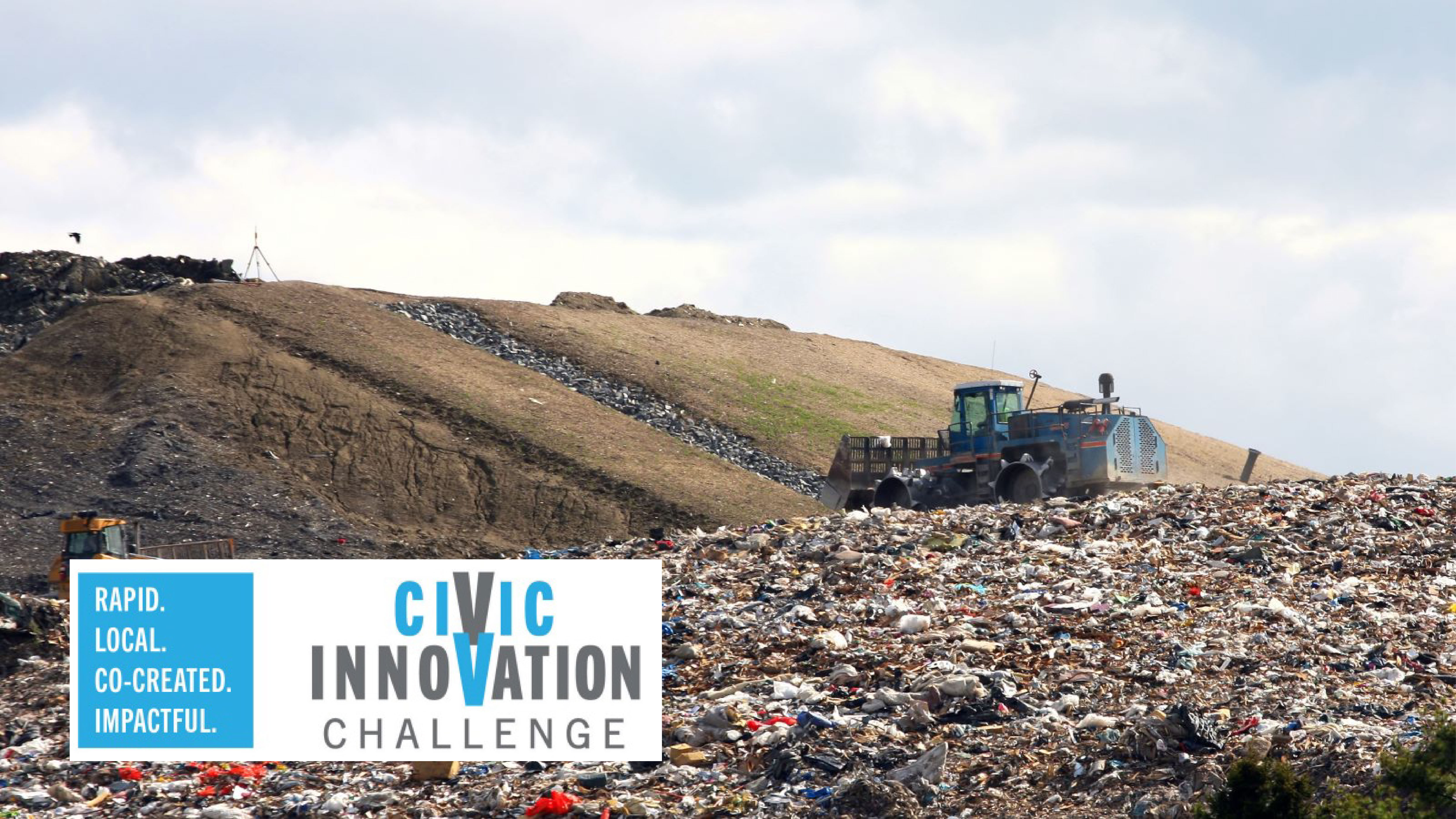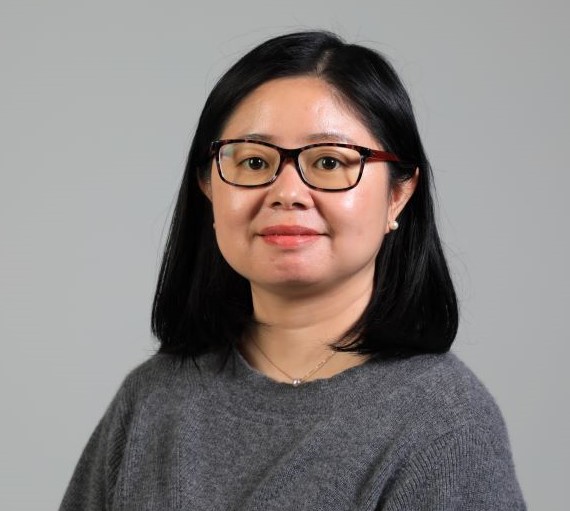Baylor Researchers Earn $1 Million NSF Award for Stage 2 of Civic Innovation Challenge
Baylor partners with the City of Waco to pilot a near-zero emission, multi-fuel combustor that transforms local waste with minimal processing into ultra-clean energy

Contact: Lori Fogleman, Baylor University Media & Public Relations, 254-709-5959
Follow us on Twitter: @BaylorUMedia
WACO, Texas (Sept. 28, 2023) – Baylor University researchers along with City of Waco leaders in sustainable infrastructure are among the 19 teams advancing to stage 2 of the Civic Innovation Challenge (CIVIC), a national research and action competition focused on rapidly transitioning emerging technologies and concepts into a local community to address their long-standing challenges.
The Baylor-Waco project, “Novel Fuel-Flexible Combustion to Enable Ultra-Clean and Efficient Waste-to-Renewable Energy in Changing Climate,” will pilot a climate-smart, waste-to-energy multi-fuel combustor on the Hannah Hill landfill in Waco to help reduce methane and key air pollutants. The project aligns with the CIVIC research track on “Living in a Changing Climate” that focuses on pre-disaster action around adaptation, resilience, and mitigation to equip communities for greater preparedness and resilience to natural disasters. Locally, the project recognizes the need for developing greater resiliency following Winter Storm Uri in 2021 and additional extreme cold weather events that knocked out electricity and natural gas to thousands of Waco residents and millions of Texans.
Through Baylor’s mission to be stewards of the community through academic excellence, and the City of Waco’s goals to provide improved infrastructure and economic development, this pilot combustor can be scaled up for various heat and power platforms and transferred to other cities, creating a cleaner and more sustainable society at large.
“Our zero-emission multi-fuel combustor can transform local waste into ultra-clean energy, which reduces the local waste treatment burden and emissions from landfills, creates a new power source for the local community and improves local air quality and overall quality of life,” said Principal Investigator (PI) Lulin Jiang, Ph.D., Baylor assistant professor of mechanical engineering who researches advanced atomization and combustion and cutting-edge laser diagnostics for flow investigation in her Cornerstone Atomization and Combustion Lab at Baylor. “Crucially, this climate-smart combustor enables high fuel flexibility, creates renewable clean energy from a wide variety of local waste products of varying composition with minimal processing and is potentially self-sustaining through both reducing waste treatment costs and selling power generated by the system.”
The work is supported by the National Science Foundation, in partnership with Department of Energy. For CIVIC’s second stage, each team has received a $1 million grant after a six-month planning phase to conduct and evaluate ready-to-implement research-based pilot projects over 12 months that have the potential for scalable, sustainable and transferable impact on community-identified priorities.
“Engineering is really a service major, so how can we bridge lab research to benefit the local community and even society at large?” Jiang said. “This novel waste-to-clean power program – driven by civic needs – is transferable to other cities and highly scalable for various heat and power platforms, simultaneously enhancing energy resilience in a changing climate and mitigating global warming at large” by reducing waste gas releases such as landfill gas, mainly methane and carbon dioxide, she added.
Jiang is joined on the Baylor-Waco project by co-principal investigator biofuel and waste energy researcher Alex Yokochi, Ph.D., professor of mechanical engineering and associate dean of research and graduate programs in Baylor’s School of Engineering and Computer Science. Stage 2 co-PI’s include Baylor colleagues Yang Li, Ph.D., assistant professor of environmental science, who will conduct high-fidelity climate modeling while also using emissions data generated from the new combustion system to investigate the effect on air quality, and Ray Perryman, Ph.D., president and CEO of The Perryman Group in Waco and a prior Nobel Prize nominee in economics, who will help estimate the economic impact of the resilient energy from the waste-to-energy project. In addition, Charles Dowdell, Chief Sustainability Officer for the City of Waco, serves as the CIVIC co-PI.
“The City of Waco is excited to announce participation in the NSF Award,” Dowdell said. “The partnership between the City of Waco and Baylor University represents an exciting research path forward that explores next-generation technologies to combat greenhouse gas emissions, which directly benefits the community. The pilot waste-to-energy system can simultaneously reduce the carbon footprint, alleviate waste treatment burdens of the local community and boost energy efficiency and resilience in a changing climate.”
“The City of Waco has been doing a wonderful job, and they have already established a collection system for landfill gas, mainly methane. We can use this collection system and build up our combustor to burn their fuels,” Jiang said. “Conventionally, those combustion systems cannot generate clean flares, so our goal is to use this new technology developed at Baylor to provide clean flare to improve the local air quality. Then we can also integrate this combustor into maybe a turbine system, like a turbine generator, or external combustion engines that can be used for energy generation.”
The Civic Innovation Challenge is an opportunity to make civic research more actionable, as partnerships between the academic and local community are at the center of these projects.
“We are proud to see how investments like the Civic Innovation Challenge awards are igniting a powerful synergy between civic leaders and universities to develop community-driven solutions that forge resilient and equitable futures,” said Margaret Martonosi, NSF assistant director for Computer and Information Science and Engineering. “These $19 million awards represent a commitment to fostering innovation that is effective for American communities and creates opportunities everywhere. We are excited to see how these pioneering pilot programs produce scalable, sustainable, and transferable solutions that empower communities to thrive.”
ABOUT CIVIC
The Civic Innovation Challenge is organized in two stages. In the first stage, teams utilized planning grants of up to $50,000 per team over a period of six months. These teams then refined their projects and competed for the second stage grants of up to $1 million per team over a period of 12 months. These second-stage awards will support ready-to-implement research-based pilot projects and have been offered to a cohort of awardees in each track. Only awardees of Stage 1 were eligible to submit proposals for Stage 2.
ABOUT BAYLOR UNIVERSITY
Baylor University is a private Christian University and a nationally ranked Research 1 institution. The University provides a vibrant campus community for more than 20,000 students by blending interdisciplinary research with an international reputation for educational excellence and a faculty commitment to teaching and scholarship. Chartered in 1845 by the Republic of Texas through the efforts of Baptist pioneers, Baylor is the oldest continually operating University in Texas. Located in Waco, Baylor welcomes students from all 50 states and more than 100 countries to study a broad range of degrees among its 12 nationally recognized academic divisions.
